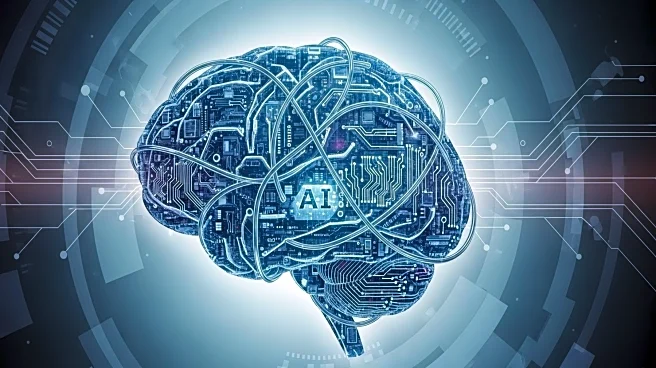What's Happening?
A study led by Charles Darwin University (CDU) has raised concerns about the impact of artificial intelligence (AI) on human dignity. Dr. Maria Randazzo, the study's lead author, argues that AI is reshaping Western legal and ethical landscapes at an unprecedented speed, undermining democratic values and deepening systemic biases. The study highlights the 'black box problem,' where decisions made by AI models are untraceable, making it difficult for users to determine if their rights have been violated. The study calls for better regulation to prioritize fundamental human rights such as privacy, anti-discrimination, and user autonomy. The paper, published in the Australian Journal of Human Rights, is the first in a trilogy on the topic.
Why It's Important?
The study underscores the urgent need for regulatory frameworks that protect human rights in the age of AI. As AI technology continues to advance, the lack of transparency in algorithmic models poses significant risks to privacy and autonomy. The study suggests that without adequate regulation, AI could further erode democratic values and exacerbate systemic biases. The findings highlight the importance of adopting a human-centric approach to AI development, as seen in the European Union, to safeguard human dignity. The study serves as a call to action for policymakers to address these challenges and ensure that AI enhances rather than diminishes the human condition.











